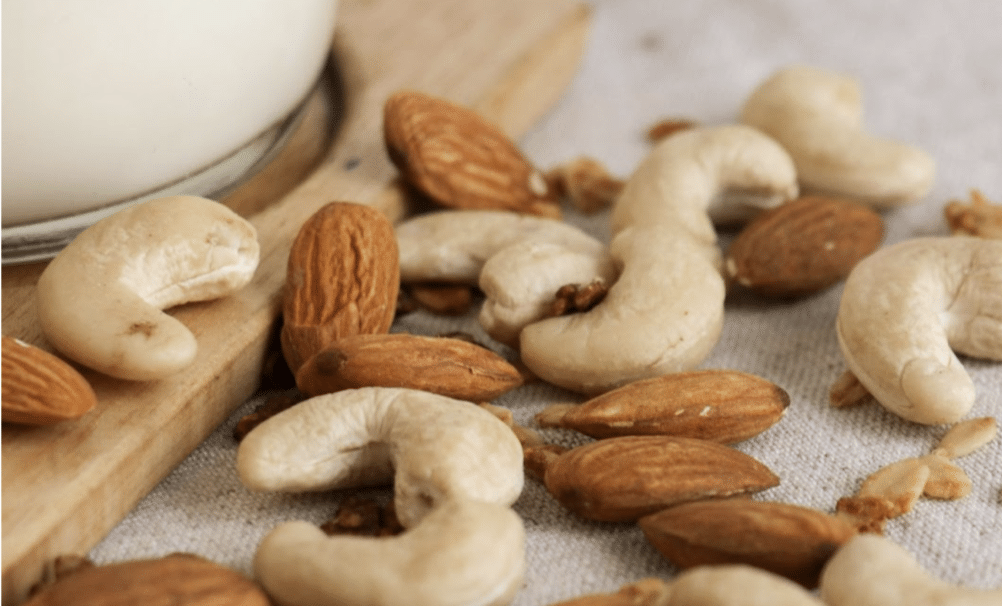Energy. It’s almost as sought-after as the fountain of youth. You know when you have it and you feel it when you don’t. It can be the difference between magnetizing your dreams or feeling like you’re moving backward.
Even if you hydrate, eat your veggies, get your sleep, meditate, and go for walks, sometimes the fatigue creeps up on you. Trying to focus on your screen feels like looking through a kaleidoscope, and you feel that fog pressing on your brain like phantom fingers. Your limbs feel heavy, and you start to wonder if some of your internal organs have turned to jello.
Where can you find more energy? Cans, bottles, mugs, and even pills – you’ve likely reached for at least one in search of more energy. But can you actually get energy from a bottle? It’s not quite that simple.
You can’t just give your body energy. Your body has to make energy itself.
And to do that, you need to have certain key ingredients. Don’t have enough of these nutrients? Your body won’t be able to make enough energy – no matter how much caffeine you chug.
The Five Best Vitamins for Energy
We’ve gathered the science on the five most important nutrients to help your body make energy. Check out below for more details on each.
- B Vitamins
- Magnesium
- Ashwagandha
- CoQ10
- Vitamin D
B Vitamins (including b1)
When you think of taking vitamins for energy, vitamin B is probably the first one that comes to mind. Thanks to the rising popularity of getting “B shots” for energy, most of us are familiar with the vitamin B energy connection.
But which of the B vitamins? And what do they actually do?
You already know that your body takes carbohydrates and fat and turns them into energy. But did you know your body needs the spectrum of B vitamins to make that transformation happen? So if you’re low in these vitamins, your body can’t access that fuel as efficiently.
In other words, the key function of B vitamins is to take the food you put in your belly and turn it into fuel for your cells. This is why deficiencies in the B vitamins can lead to fatigue.¹
Taking a B-complex vitamin is typically a good approach, but keep an eye out for B1. Vitamin B1 is also called thiamine, and many B-complex vitamins don’t actually include B1. You can find thiamine supplements, or add more of these to your diet: lentils, oats, black beans, pinto beans, and sunflower seeds.
Those with GI issues or following a strict vegan diet need to watch their B12 levels, as it’s primarily found in fish, meat, and dairy products.
Magnesium
Your primary cellular fuel is ATP. (Don’t worry, we won’t make you relive high school chemistry!)
All you need to know is that ATP needs magnesium to get fired up.² This is one of the reasons you’ll see it said that every cell in your body needs magnesium to function.
Low on magnesium? Your cells won’t be able to function optimally, which means you start to feel fatigued.
Magnesium is also critical to getting a good night’s sleep. It helps to regulate the neurotransmitters related to sleeping. And we don’t have to tell you how important a good night’s sleep is to feel energetic the next day!
Looking for an energy boost during your workout? Magnesium might be able to help. You’ve heard of the lactic acid that builds up in your muscles while you workout? It causes muscle fatigue and can make you sore. Well, magnesium gets rid of that lactate out of your muscles by bringing in blood sugar instead. Studies show this might support improved exercise performance.³
Some great natural sources of magnesium include spinach, chard, pumpkin seeds, almonds, cashews, black beans, and even dark chocolate.

Ashwagandha
Ashwagandha is a darling of traditional medicine, and modern science is beginning to understand why. Classified as an adaptogen, ashwagandha has been shown to make your body more adaptable to physical and mental stress.⁴
Study participants given ashwagandha show an improvement in stress and anxiety levels when compared to those given a placebo.⁵,⁶
In a nutshell, this means it can help you feel less mental fatigue, which often translates to less physical fatigue.
Besides freeing up more mental energy, ashwagandha also shows great promise for athletic energy. A group of elite cyclists given ashwagandha for eight weeks showed significant improvement in aerobic capacity compared to a placebo group.⁷ The best thing about ashwagandha? It carries very low risk of side effects.⁸
CoQ10
CoQ10 is naturally found in all your cells. That ATP we mentioned earlier? CoQ10 is involved in making ATP, which generates the energy your cells need to grow and thrive. And low levels of CoQ10 have been associated with fatigue and lack of energy.⁹
While your body naturally makes CoQ10, its levels do decline with age or because of nutritional deficiencies.¹⁰
And if you’re low in CoQ10, it’s difficult to get enough from food sources, so finding a high-quality supplement is your best bet.
Note that if you do NOT have low levels of CoQ10, taking the supplement is not likely to give you more energy.¹¹
Vitamin D
Most of us think of vitamin D as the “sunshine vitamin” and mistakenly assume that we get enough naturally. In reality, up to 50% of people are low in vitamin D.¹² Here’s why that matters:
If you’re not getting enough vitamin D, your body’s response will likely include muscle fatigue.¹³ As you might imagine, it’s pretty tough to feel energized when your muscles are achy and tired.
The good news is that studies show you can improve your muscle efficiency if you remedy low vitamin D levels.¹⁴
You know what else can sap all your energy? Feelings of depression. Insufficient levels of vitamin D have indeed been linked to depression.¹⁵
The bottom line
Now that you understand more about how your body makes energy, feel free to explore getting more of these nutrients in your diet.
Please note: taking these vitamins is NOT going to give you an instant shot of energy the way a cup of coffee would. Instead, it will take your body a few days or weeks (depending on how depleted you are) to rebuild its stores of these vitamins.
Once you reach that point, your body will naturally be able to create more energy, and you should really notice a difference. This is quality energy that lasts and that you can count on!
References:
- https://www.ncbi.nlm.nih.gov/pmc/articles/PMC4772032/
- https://www.ncbi.nlm.nih.gov/pmc/articles/PMC4960558/
- https://www.ncbi.nlm.nih.gov/pmc/articles/PMC5622706/
- https://pubmed.ncbi.nlm.nih.gov/10956379/
- https://pubmed.ncbi.nlm.nih.gov/23439798/
- https://www.ncbi.nlm.nih.gov/pmc/articles/PMC4270108/
- https://www.ncbi.nlm.nih.gov/pmc/articles/PMC3545242/
- https://pubmed.ncbi.nlm.nih.gov/23439798/
- https://www.ncbi.nlm.nih.gov/pmc/articles/PMC4136529/
- https://www.ncbi.nlm.nih.gov/pmc/articles/PMC5807419/
- https://www.ncbi.nlm.nih.gov/pmc/articles/PMC3178961/
- https://www.ncbi.nlm.nih.gov/pmc/articles/PMC3356951/
- https://academic.oup.com/jcem/article/98/3/E509/2536948
- https://academic.oup.com/jcem/article/98/3/E509/2536948
- https://www.ncbi.nlm.nih.gov/pmc/articles/PMC3356951/



